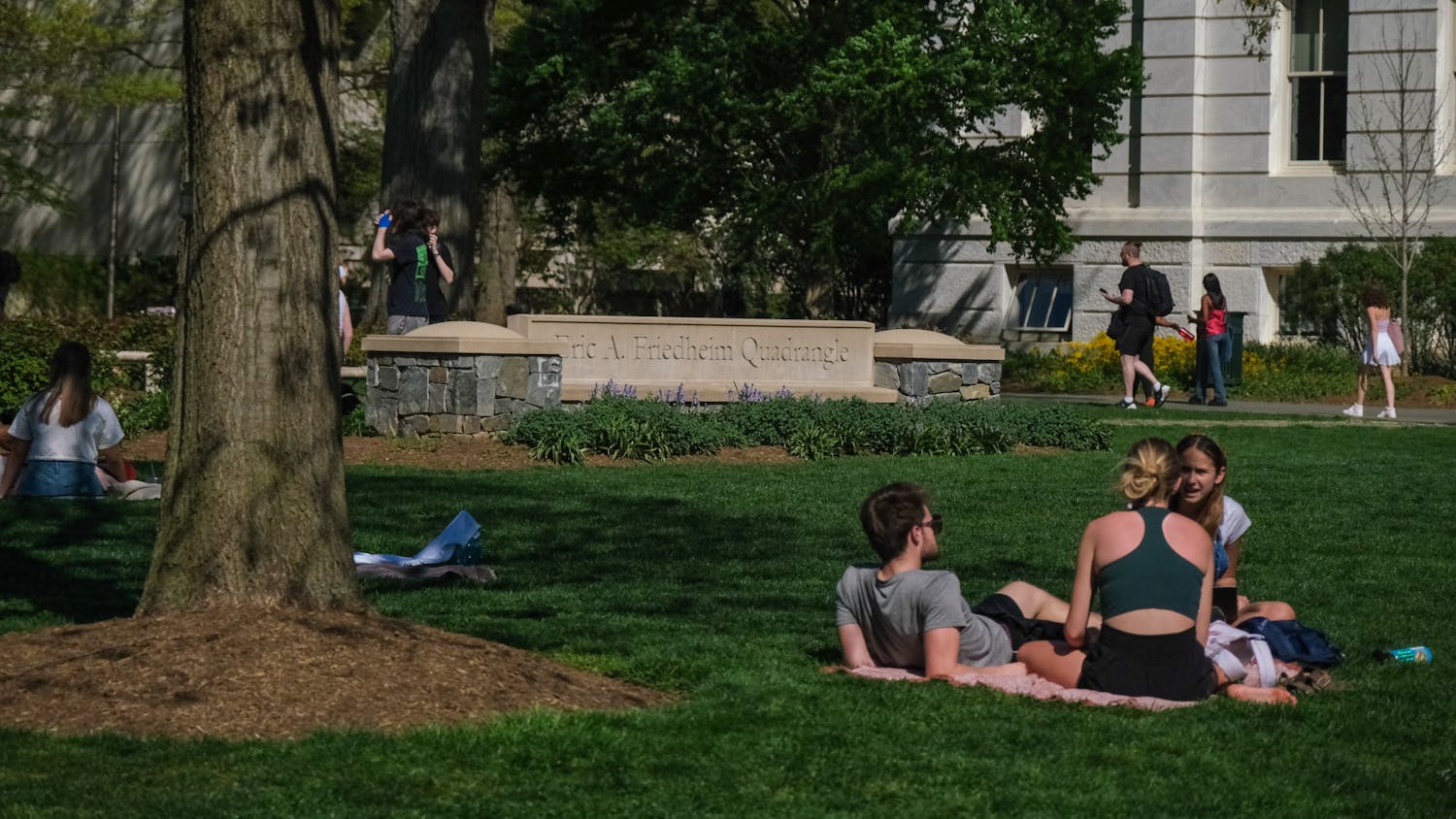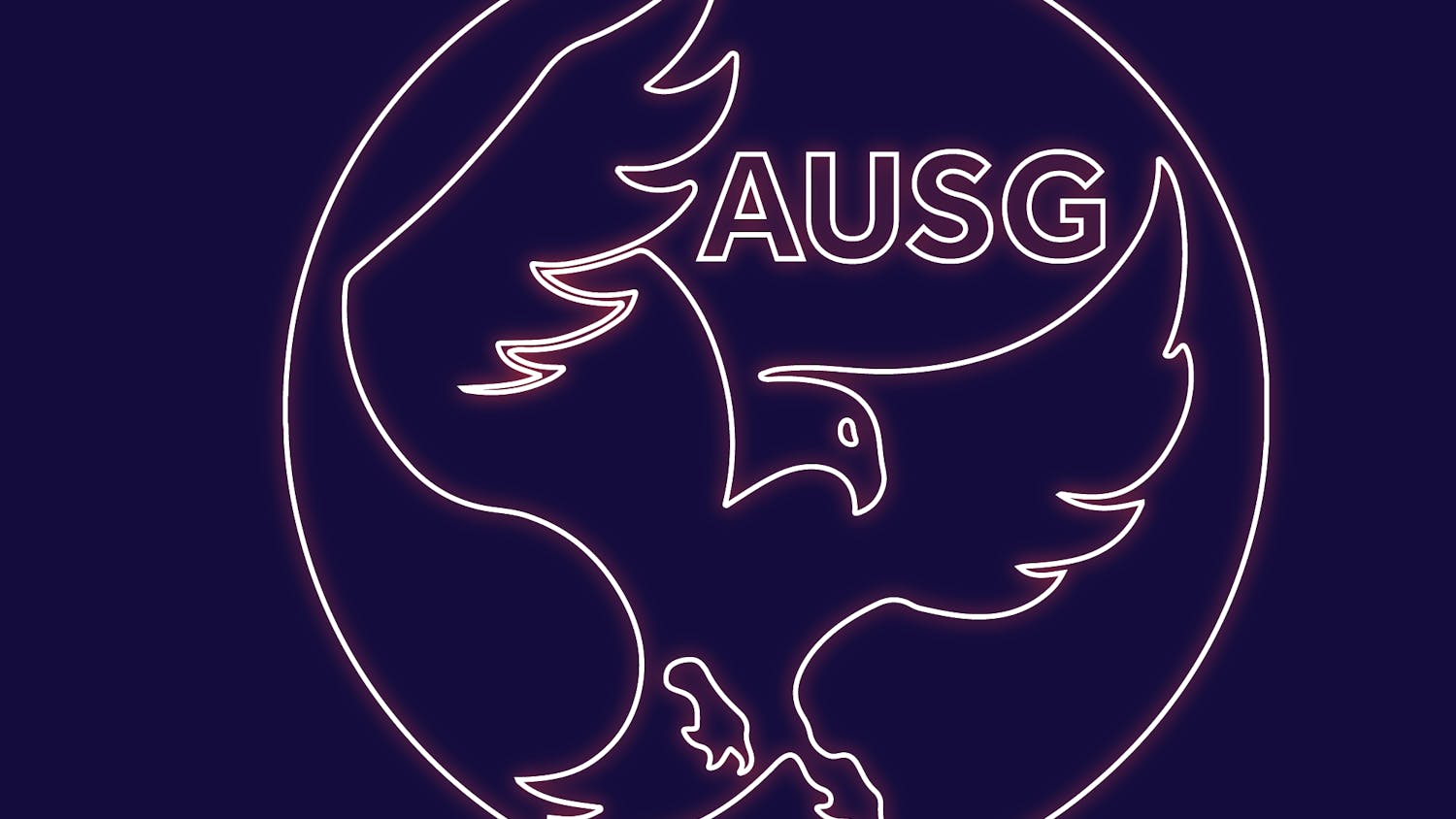The Army Corps cleanup of the Spring Valley neighborhood is a matter of national importance, and the U.S. government has an “undisputed responsibility,” U.S. Del. Eleanor Holmes Norton, D-D.C., said at a town hall meeting Tuesday night in Mary Graydon Center.
The Democratic congresswoman added she does not believe in “chastising history” and instead urged everyone to look to the future.
“That was then, this is now,” she said. “We are now getting a different response.”
She credited better oversight to the fact that D.C. now has a delegate in Congress and community outreach programs — neither of which existed during World War I.
Norton held the event to inform the Spring Valley neighborhood and AU community members of the latest happenings in the ongoing search for WWI-era chemical munitions in the area and to give them a sense of the shape future investigations will take.
It also provided a discussion forum where attendees could direct questions at those responsible for the cleanup.
Speakers included D.C. Councilmember Mary Cheh, D-Ward 3, as well as representatives from the D.C. Department of the Environment, the U.S. Environmental Protection Agency and the Office of the Assistant Secretary of the Army.
Norton and several other panelists stressed that the Spring Valley Formerly Used Defense Site was the number one priority of all former defense sites in the United States, because it lies in a residential area.
In his first public appearance as the new commander and district engineer of the Army Corps of Engineers’ Baltimore District — which oversees the Spring Valley dig — Col. David Anderson told attendees that he brought a fresh set of eyes to the Corps’ investigation of Spring Valley. He assumed command of the Corps’ Baltimore district a little over two months ago.
“We have — believe it or not — 1,200 active projects of one sort or another in the Baltimore district. None of them are more important than the Spring Valley cleanup to me,” Anderson said.
After the panel, Norton told The Eagle that the university had been very accommodating with her requests for a suitable venue to host the community.
“We looked at a number of places to have it and it seemed to me it was particularly appropriate to have it here,” she said. “The university still has issues right here on this campus, so they have every reason to be deeply involved. And they have been entirely cooperative, at least with me.”
Teresa Flannery, the executive director of University Communications and Marketing, said the university would be open to holding a similar-style event for AU student groups.
“We’re talking right now about whether any of the student leadership organizations think it would be valuable to do an open forum with our scientific consultant, Dr. Paul [Chrostowski], to talk about the whole project, any questions they have, give specific facts [and] talk about what we’ve been able to do,” Flannery said.
Scott Berman, EcoSense’s environmental justice coordinator and a sophomore in the College of Arts and Sciences, said AU was a viable spot for the meeting due to its status as a former defense site.
“It’s great that it’s here as well, because this is the site where this has been happening,” he said. “Obviously, there’s been enough awareness about the issue that they finally care to do something about it.”
You can reach this staff writer at ccottrell@theeagleonline.com.




